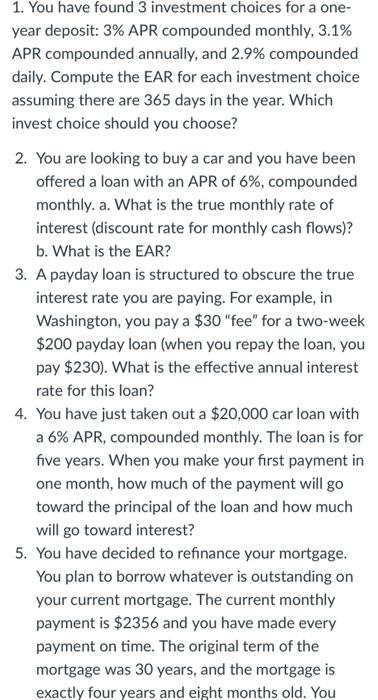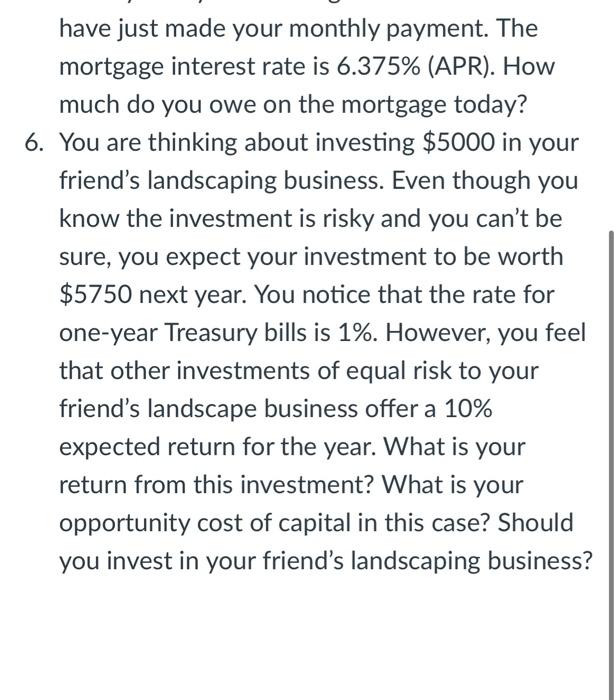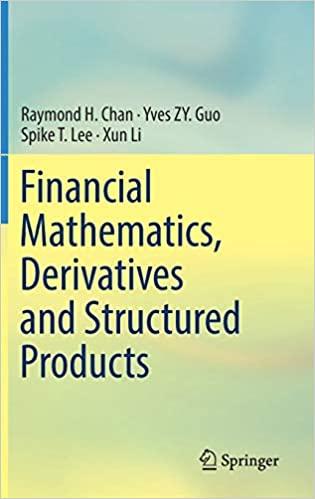Answered step by step
Verified Expert Solution
Question
1 Approved Answer
1. You have found 3 investment choices for a one- year deposit: 3% APR compounded monthly, 3.1% APR compounded annually, and 2.9% compounded daily. Compute


Step by Step Solution
There are 3 Steps involved in it
Step: 1

Get Instant Access to Expert-Tailored Solutions
See step-by-step solutions with expert insights and AI powered tools for academic success
Step: 2

Step: 3

Ace Your Homework with AI
Get the answers you need in no time with our AI-driven, step-by-step assistance
Get Started


